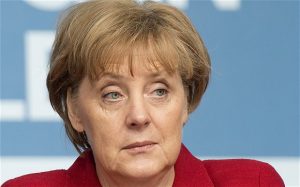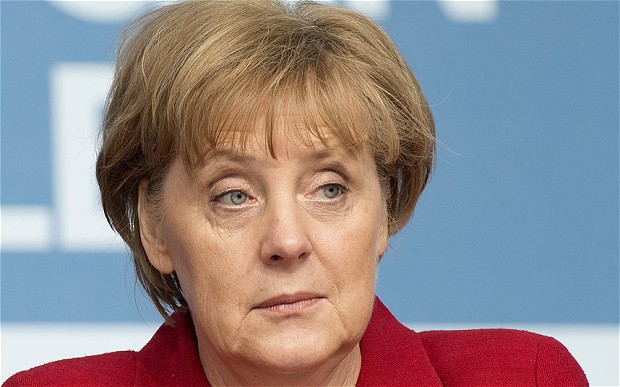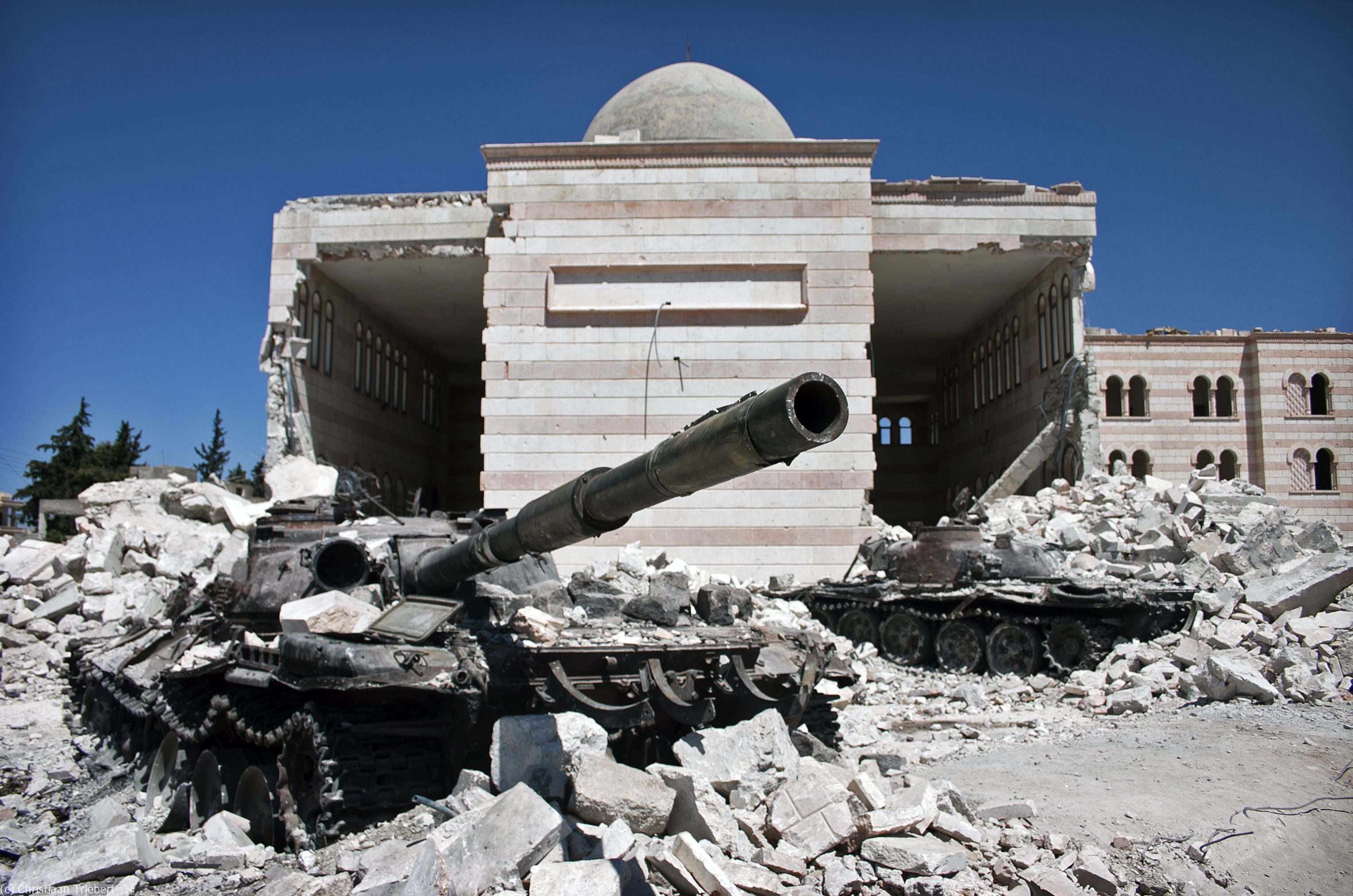By: Quinn Rogness

Source: The Telegraph
Four years after winning reelection as Germany’s Chancellor, Angela Merkel and her Christian Democratic Union (CDU) have again maintained control of the Germany’s Bundestag (Parliament) in recent elections. CDU increased its percent of the vote from 33.8 percent of the vote in 2009 to 41.5 percent, giving her party greater control over the German Parliament. The triumph is more sweet still after a rough four years of financing bailouts to debt-stricken, fledgling European nations such as Greece, Ireland, Portugal, Spain, and Cyprus, providing a life preserver to these countries that had all-but capsized fiscally. Germany’s Social Democratic Party (SPD) also received a boost in comparison to its 2009 results, going from 23 percent of the vote to 25.7. Meanwhile, radical, social party “The Left” and the environmentally friendly Green Party lost votes from their 2009 results, falling to 8.6 and 8.4 percent of the vote respectively. However, the losses incurred by The Left and the Greens pale in comparison to the implosion of the Free Democratic Party. The socially-liberal, free-market advocates won a record 14.6 percent of ballots cast in 2009, while this year that fell to 4.8 percent, which is below the 5 percent minimum threshold to receive representation in the Bundestag. A staple of the Parliament since just after the Second World War, Germany’s “Kingmakers” and favorite coalition-partners will suffer expulsion from Parliament. After these elections, many questions remain unanswered. What led to FDP’s downfall, and where do they go from here? Who will Merkel form a coalition with and how will this impact her governing?
In this election cycle, the Free Democrats have suffered three consecutive failures, losing their place in the Bundestag entirely. To put into perspective the shocking defeat, this will be the first time since 1949 that the FDP will not be represented at a national level in German politics; the party has been a part of the governing coalition in 52 of the past 64 years. This failure can be attributed to swing voters, many of whom cast their ballots for FDP in 2009 due to their disillusionment with CDU and have since returned to voting for Merkel’s party due to reaffirmed faith in her governing abilities. Also, the formation of Germany’s Euroskeptic “Alternative for Germany” (AfD) party took a significant portion of the vote (4.7 percent). Unfortunately for the FDP, most of these ballots would have normally been cast for the classical liberals of Germany. Many blame the lack of noteworthy achievements and poor policy proposals put forth by the FDP under Merkel’s leadership. German voters seem to feel as if FDP has become too much of a puppet coalition member, and not enough of an independent-minded, thoughtful, yet cooperative and reasonable ally to CDU. Finally, there is the noteworthy absence of significant FDP members successfully serving in noteworthy federal positions. Former party leader Guido Westerwelle has served as the nation’s foreign minister under Merkel’s reign, but his role in that position has been unpopular. The FDP’s lack of accomplishments during a time where free-market policies have faced intense scrutiny, along with new opposition in AfD has led to the parties ousting from Parliament, and in order to survive in the future, the party must redefine the value of free-trade, free-market, and socially liberal policies in a heavily Eurocentric, pro-regulation, and socialist-friendly era.
Without FDP, a new coalition will govern Germany. The prospect of Merkel’s party governing with SPD or the Greens have been tossed around, and even a SPD-Green-The Left coalition was talked about briefly. In the end, the Greens and SPD discounted the possibility that they could govern effectively with The Left as a coalition member, labeling the party as being too radical. Many Greens also have sought a governing coalition with CDU, but this also has not occurred. Instead, Merkel reached out to her primary rivals in SPD to attempt to form a grand coalition between the nation’s two largest parties. The specter of two rival parties, diametrically opposed politically, yet joining together to govern, may be frightful to Americans (or enticing, depending on your thoughts on the government shutdown). However, a grand coalition has been formed multiple times in the past, and some have succeeded.
Moving forward from her electoral triumph, Merkel’s challenge will be to continue to navigate the waters of Europe’s economic troubles, furthermore without FDP’s support. Now, Merkel must find a way to govern alongside her former rivals, SDP, and justify the German voter’s confidence in her abilities, while FDP must pick itself up from defeat, and manage to retool and rebrand itself as a viable player in the future politics. A grand coalition can work well in Germany if both parties pursue pragmatism and try to solve the nation’s problems rather than harp on ideological differences. If the two are able to legislate together, there will likely not be enough opposition to resist their efforts, thus making the fight within the coalition the most crucial battle in the Bundestag. These elections signaled that Germans accept Merkel’s pragmatic and realistic problem-solving approach, and that they are looking for Germany to maintain its status as Europe’s steady foundation during a time of economic and political uncertainty.


